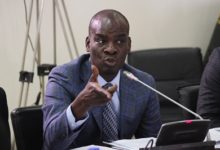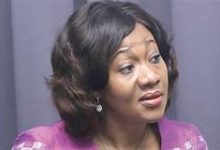Yesterday the Finance Minister, Ken Ofori-Atta, updated Ghanaians on fiscal measures to tackle the rising cost of living in the country resulting from skyrocketing prices of petroleum products and general inflation, as well as other measures to shore up revenue and ameliorate the hardship of the populace.
Acknowledging the hardship facing the ordinary man, Mr Ofori-Atta attributed the economic difficulties to recent domestic and global events, pointing out that the difficulties had manifested in rising fuel prices; rising inflation and cost of living; exchange rate depreciation; rising interest rates; and revenue mobilisation challenges.
Importantly, he said the global and domestic developments were affecting the effective implementation of the budget.
As expected, he said the difficulties being faced in Ghana were not peculiar to the country as COVID-19 and the Russian Ukraine war were two principal factors driving the difficulties and that governments in both developed and developing countries were busily adopting various prescriptions to bring their economies back on track.
The minister said the cedi had cumulatively depreciated by 15.6 per cent against the US dollar, and 13.4 per cent and 13.3 per cent respectively against the Pound Sterling and Euro, from the beginning of the year to March 23, two days ago.
One important feature of the finance minister’s speech was the announcement on the stock of public debt, which had increased from GH¢218.2 billion (61.2 per cent of GDP) at the end of December 2020 to GH¢351.8 billion (80.1 per cent of GDP) currently, explaining that domestic debt was GH¢181.8 billion (51.7 per cent), with the external one being GH¢170.0 billion (48.3 per cent).
Then on measures, he said, for example, that the Bank of Ghana had announced a number of complementary monetary measures to address the rising cost of goods and services on the market and the poor performance of the cedi against major currencies such as the Dollar, the Pound Sterling and the Euro had created anxiety among both traders and consumers alike.
He also said the government would pursue additional measures to ensure the achievement of the fiscal deficit target of 7.4 per cent of GDP for 2022.
He mentioned such other measures to include spending cuts, which the government began with the implementation of a 20 per cent expenditure cut from January this year,
Besides, he said the government would do all it could to ensure consistent supply of fuel and manage the rate of ex-pump price increase by ensuring that Bank of Ghana had access to adequate foreign exchange.
Then Mr Ofori-Atta mentioned and gave details of revenue and financing and currency measures before he made his conclusion in which he said the government was aggressively pursuing key interventions such as 1D1F, GhanaCARES and the YouStart programmes to improve the ability to locally produce more goods and optimise the opportunities AfCFTA offered the country.
As he was sort of assuring the public of how workable the measures adopted by the government were, the finance minister said if the government followed them, the country’s economy should return to pre-pandemic levels across most economic indicators by the end of the year.
The Ghanaian Times can only say it expects the hardship in the country to ease for the ordinary man to have some relief.
The paper wishes the reduction in fuel prices would have been a bigger percentage than the 1.4 per cent or so offered compared to the over 60-per cent cumulative increase in recent times.
Whatever, the issues, the Ghanaian Times would like to say that the responsibility to bring back the economy on its feet is not only on the government but also on the people.
The announcement of the country’s debt stock, for instance, should tell everyone that there is the need to maximise domestic revenue and reduce borrowing, both internally and externally.
This may involve various sacrifices such as the members of the Council of State cutting their salaries by 20 per cent, a sacrifice all public officials must make and even offer a higher percentage.
For the rest of Ghanaians and others living in the country, everyone should be ready to pay the various taxes concerning them such as property rate and tolls.





